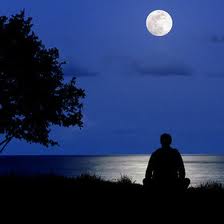Q: I need some practical guidance on practising advaita in daily life. Please advise me of the best course of action.
A (Dennis): You cannot ‘practise’ Advaita. Advaita is a teaching/philosophy. Its aim is to bring you to the total understanding that reality is non-dual; that all-there-is is brahman or Consciousness, and that who-you-really-are is that brahman. Only the body-mind can ‘practise’ or ‘live a life’ and you are not that. The body-mind and the world are mithyA, which means that they are not real in themselves; their real substratum is brahman.
Q: Many thanks for the response. I have a question though. I understand that Advaita is a philosophy. But what does one do with a philosophy? Try to understand? Try to live it? What is my next course of action? I know that action should be ruled out. But what is the next step for me? What do I do or where do I go from here. I hope I am able to explain my point. I look forward to hear from you.
A: Advaita is a teaching methodology. It provides a step by step ‘education’ for the seeker to bring him or her Self-knowledge. Ideally, this teaching is given by a qualified teacher. This is someone who already has Self-knowledge and also has the skills to teach it to someone else. Since the original teaching derives from the scriptures, a deep understanding of these and a knowledge of Sanskrit is also deemed by many to be a necessary qualification for a teacher.
Accordingly, the next step would ideally be to find such a teacher and study with them for as long as necessary – usually at least a few years. Failing that, you have to read widely (but only those books that do not confuse!) and ask lots of questions (of someone who can answer them!).




